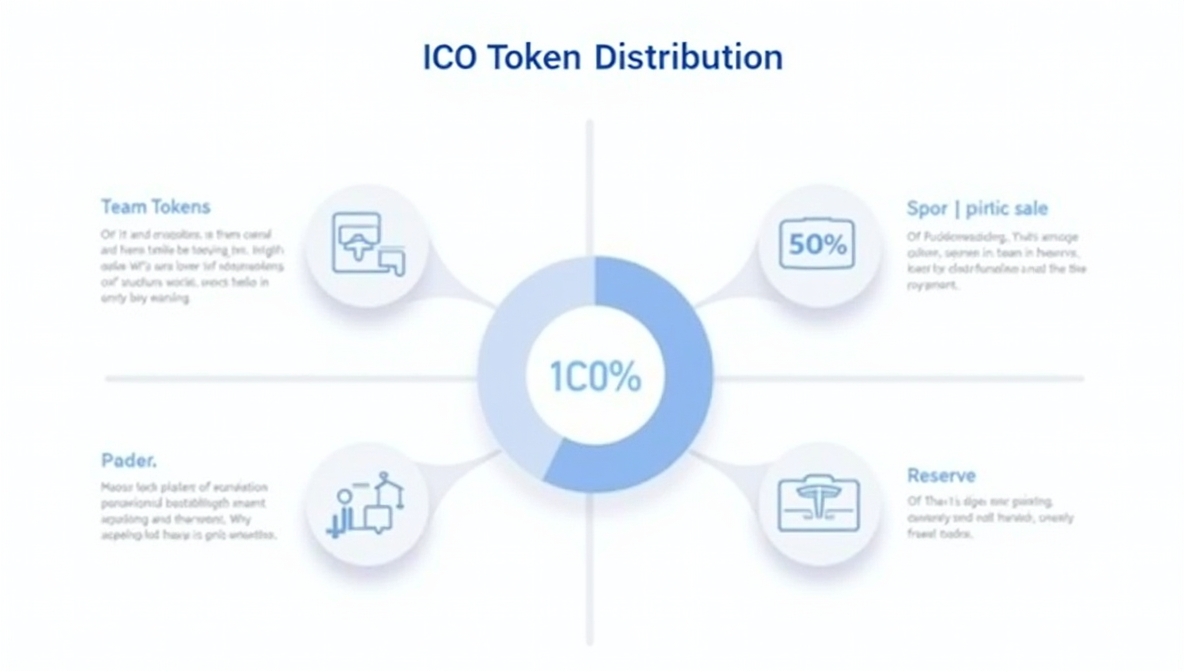In today’s rapidly shifting financial landscape, the concept of tokenization has emerged as a groundbreaking innovation, paving the way for a new era of asset management and trade including the tokenization of carbon credits. But among the myriad of applications, tokenizing carbon credits stands out as a revolutionary stride in environmental finance. Carbon credits play a vital role in combating climate change by providing a mechanism for businesses and individuals to offset their greenhouse gas emissions. The integration of these credits into the blockchain ecosystem marks a significant leap forward, enhancing transparency, efficiency, and access in the carbon markets. In this blog, we are going to see how.
A Step Back: How Does Tokenization Work in General?
Tokenization refers to converting the rights to a physical asset into a digital token on a blockchain. This process has catalyzed efficiency and liquidity in various financial sectors by enabling seamless and secure transactions. Before delving into how tokenization works with carbon credits, let’s recap how it generally functions. In essence, tokenization involves the digital representation of an asset, allowing it to be traded or managed on blockchain platforms. This provides a host of benefits, such as real-time transactions and reduced costs, which are now being harnessed to optimize carbon trading mechanisms.
Introduction to Carbon Credits
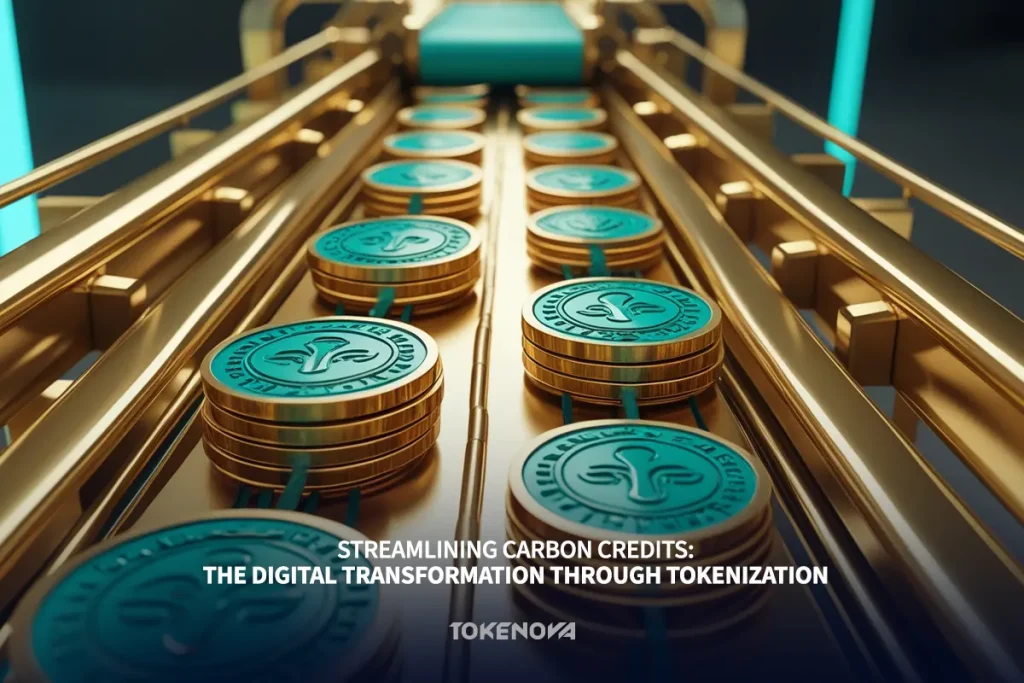
Carbon credits are certificates that represent the reduction of one ton of carbon dioxide (or its equivalent in other greenhouse gases) from the atmosphere. They are pivotal tools for organizations aiming to meet regulatory or voluntary carbon targets. By purchasing carbon credits, entities essentially pay for carbon offset projects, such as reforestation or renewable energy installations, thus contributing to global emission reduction efforts. The process of tokenizing these credits involves digitizing them on a blockchain, which not only facilitates their trade but also ensures greater transparency and accountability.
How Tokenization of Carbon Credits Works
Tokenizing carbon credit can be explained as follows: to assign token representation to the carbon credits, blockchain can be used. Such a transformation leverages the inseparability of blockchains to ensure the authenticity and accountability of the recorded transactions. Carbon credits fractionalization makes markets more accessible to smaller investors and thus, makes markets liquid and efficient.
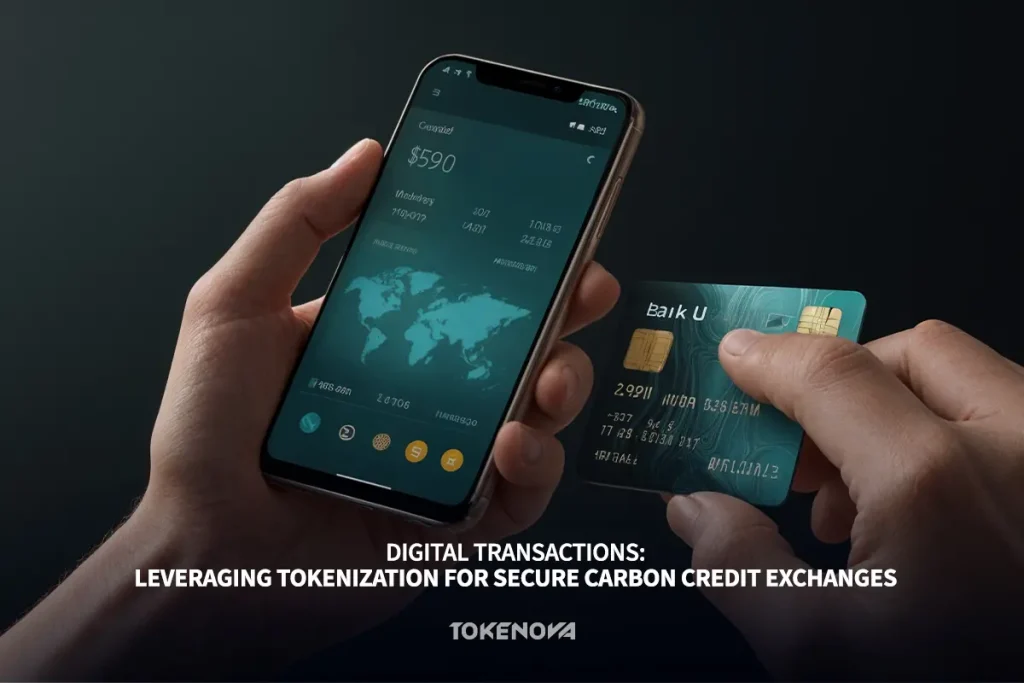
Understanding Carbon Credits
Carbon credits are designed to help reduce emission levels by providing a financial incentive for the change. These credits are bought by companies or individuals who want to balance their other emissions, which means funding for projects with the primary purpose of decreasing CO2 emissions. Different kinds of carbon credits exist, such as the verified carbon units as well as carbon offset units that have properly laid down verification and issuance procedures to prove the actuality of the emission reductions.
Verification Process for Carbon Credits
Verification makes sure that carbon credits do relate to real and additional emission reductions. All carried out projects must be vetted by third parties and this must fully confirm that they have attained the required standard. This validation is important when tokenizing carbon credits since, on the blockchain, the credibility of the data underlying the tokenized asset is essential for ensuring the authenticity of the tokens.
Benefits of Tokenizing Carbon Credits
| Aspect | Benefits | Challenges and Considerations | Solutions |
| Liquidity and Trading Efficiency | Enhances speed and ease of trading; digital tokens can be swiftly transferred across borders. | Lack of a unified regulatory framework can hamper cross-border trading. | Platforms like Tokenova work with regulators to establish consistent regulations. |
| Transparency and Accountability | Blockchain provides a transparent, immutable record of transactions, eliminating double-counting risks. | Potential for market manipulation and fraud due to the nascent nature of tokenized markets. | Implementing robust security measures and vigilant monitoring is essential. |
| Access for Smaller Investors | Lowers entry barriers, democratizing access to carbon markets for smaller investors, increasing market participation. | Need for robust verification and monitoring to ensure legitimacy and prevent double-counting. | Advanced verification technologies (AI, blockchain, IoT) enhance accuracy and transparency in carbon credit tracking. |
| Creation of New Financial Products | Paves the way for innovative financial instruments like carbon futures and ETFs, offering new investment opportunities. | Fostering collaborations between governments, private enterprises, and environmental organizations streamlines processes. |
- Improved Liquidity and Trading Efficiency
Tokenization enhances the speed and ease with which carbon credits can be traded. Digital tokens can be swiftly transferred across borders, facilitating rapid market responses to supply and demand changes.
- Increased Transparency and Accountability
Blockchain’s decentralized ledger provides a transparent and immutable record of carbon credit transactions. This eliminates the risk of double-counting and boosts accountability within the market, making it more trustworthy for all participants.
- Enhanced Access for Smaller Investors
By lowering entry barriers, tokenization democratizes access to carbon markets, allowing smaller investors to engage in carbon trading previously dominated by large entities. This could lead to an increase in market participation and volume.
- Creation of New Financial Products and Derivatives
Tokenized carbon credits pave the way for innovative financial instruments, such as carbon futures and ETFs, offering new investment opportunities and risk management tools.
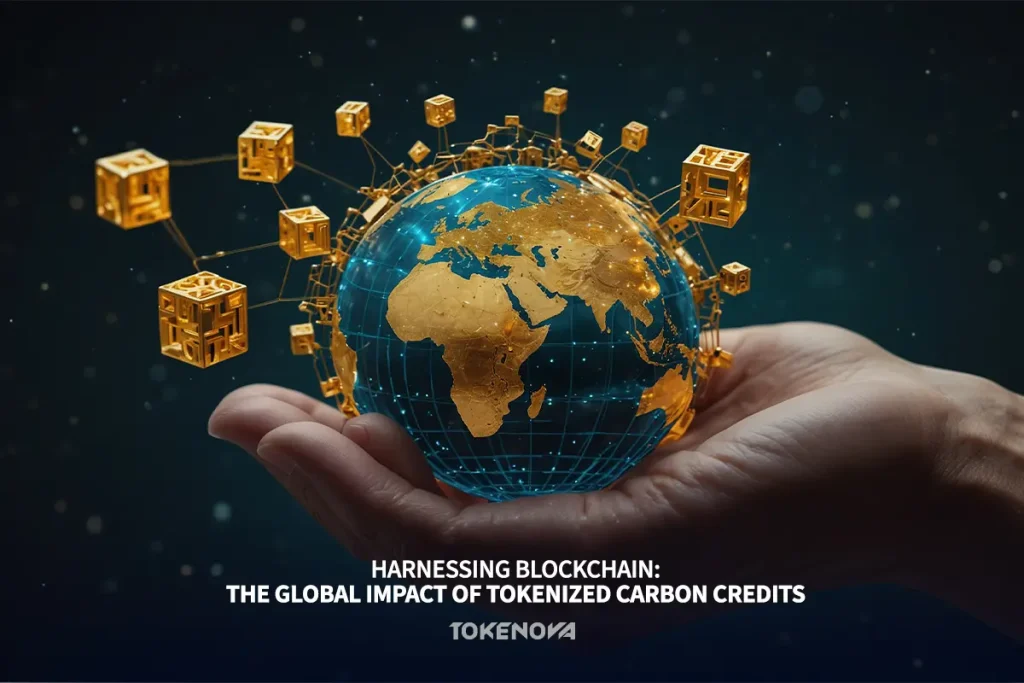
Challenges and Considerations in Tokenizing Carbon Credits
- Regulatory Hurdles and Standardization
A significant challenge in the tokenization of carbon credits is the lack of a unified regulatory framework, which can hamper cross-border carbon credit trading. Standardizing regulations is crucial for the widespread adoption of tokenized carbon credits.
- Potential for Market Manipulation and Fraud
The nascent nature of tokenized markets poses risks of manipulation and fraud. Robust security measures and vigilant monitoring are essential to safeguard against these threats.
- Need for Robust Verification and Monitoring
To prevent double-counting and ensure the legitimacy of carbon credit tokens, strong oversight, and advanced verification technologies are necessary.
Solutions to Address These Challenges
Services provided by platforms like Tokenova are instrumental in addressing these challenges. Tokenova works closely with regulators to establish consistent regulations for tokenized carbon credits, ensuring compliance across various jurisdictions. By implementing advanced monitoring technologies such as AI, blockchain, and IoT, Tokenova enhances the verification process, ensuring accuracy and transparency in carbon credit tracking. Furthermore, Tokenova fosters collaborations between governments, private enterprises, and environmental organizations, streamlining the process of tokenizing carbon credits and creating a unified market.
Real-World Examples and Case Studies
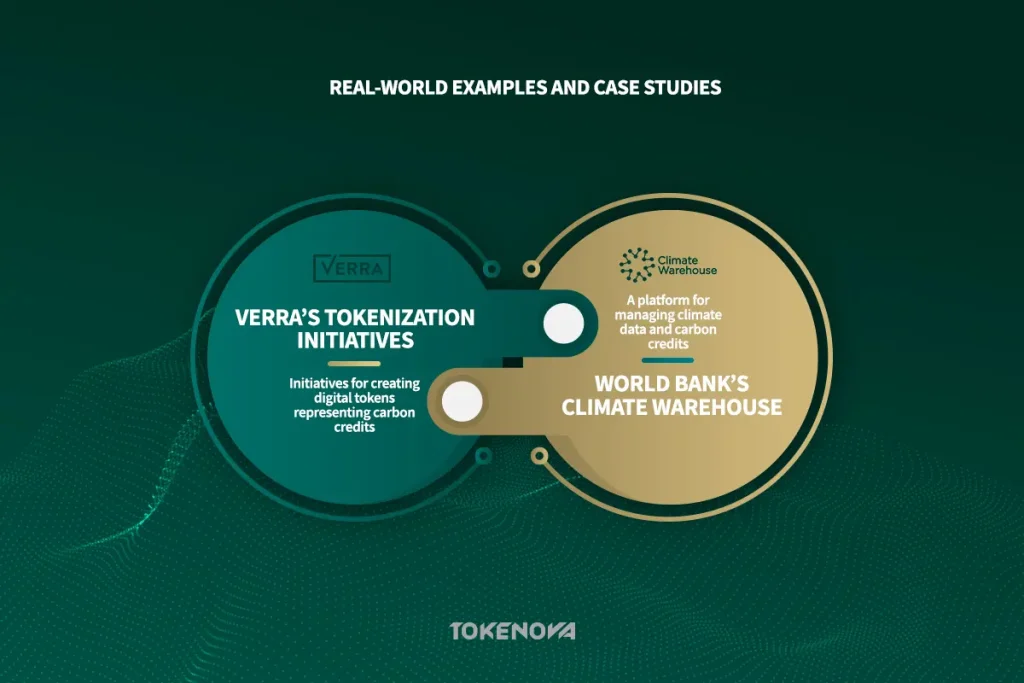
Successful projects such as the World Bank’s Climate Warehouse and Verra’s tokenization initiatives have laid the groundwork for future endeavors. These projects provide invaluable lessons and best practices, demonstrating the effective implementation of tokenization in carbon credit markets.
The Future of Carbon Credit Tokenization
As the tokenization of carbon credits evolves, its potential impact on climate change mitigation becomes increasingly significant. By integrating into sustainable finance products like green bonds and ESG funds, tokenized carbon credits could accelerate the transition to a greener economy, supporting global efforts to reduce carbon emissions.
conclusion
In conclusion, the tokenization of carbon credits signifies a profound advancement in environmental finance. By improving transparency, liquidity, and accessibility, these digital instruments have the potential to revolutionize how carbon credits are traded and managed, contributing to more robust and effective climate action strategies.
With these insights, we can appreciate how the integration of blockchain with carbon markets not only supports financial innovation but also reinforces global sustainability goals.
How does tokenization enhance the value of carbon credits?
Tokenization adds value by improving liquidity and transparency, making credits more accessible and tradable.
What are the environmental benefits of tokenizing carbon credits?
It leverages technology to ensure the credibility of carbon credits, fostering trust and enhancing global participation in emission reduction initiatives.
Can individuals participate in tokenized carbon credit markets?
Yes, tokenization democratizes access, allowing individuals and smaller investors to engage in carbon credit trading.
What are the technological requirements for implementing carbon credit tokenization?
It requires a robust blockchain infrastructure, coupled with AI and IoT technologies for accurate monitoring and verification.
How can Tokenova assist businesses in adopting carbon credit tokenization?
Tokenova provides advisory services and advanced technological solutions to help integrate tokenized carbon credits into corporate sustainability strategies.




